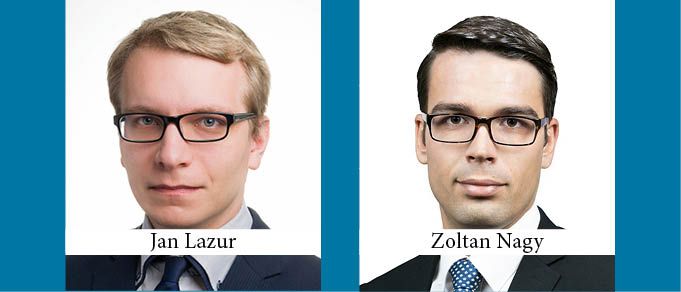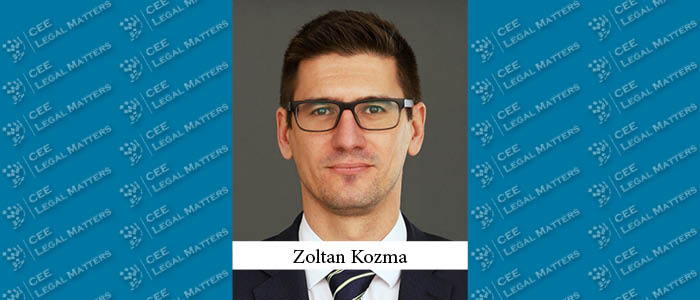On March 28, 2019 the Slovak parliament adopted Act No. 91/2019 Coll. on Unfair Conditions in Food Trade, which completely replaces previous legislation on the subject.
Overhaul of the Slovak System for Support of Renewable Energy Sources
The Slovak system for the support of renewable energy sources has been marked in recent years by a lack of transparency and strategic vision. Even though the Slovak Republic undertook to increase its share of energy from renewable sources to 14% by 2020, in fact in recent years the share of renewables in energy consumption has actually decreased. “Allegedly for technical reasons, virtually no renewable electricity sources have been connected to electricity distribution networks since 2014.”
Inside Insight: Interview with Maros Pogany, Head of Legal at KIA Motors in Slovakia
Maros Pogany is the Head of Legal at KIA Motors in Slovakia – a position he has held for the past nine years. Before joining KIA in 2004, he spent over three and a half years as a litigator in private practice and one year as a lawyer with the Matador Automotive Group. He is a 1999 graduate of the Law Faculty at the Pavol Jozef Safarik University in Kosice, Slovakia, and in 2017 he obtained an MBA from the DTI University in Dubnica nad Vahom, Slovakia.
Labor Law Changes Affect Automotive Industry in Slovakia
Two new regulations with significant effects on the automotive sector were introduced on January 1, 2019, in Slovakia.
The Slovak Tax Tiger Succumbs to Political Populism – Retail Chains Levy Likely
In its December session the Slovak parliament will decide whether to adopt a sectoral tax in the form of a 2.5% levy on net quarterly turnover of retail chains (the “retail chains levy”). The official purpose of the bill under consideration is to reach the strategic goal of food self-sufficiency, to finance the creation of mechanisms supporting Slovakia’s agricultural production and food industry, and to weaken the allegedly dominant position of large retail chains as regards their profits. The annual yield of the new tax is estimated at approximately EUR 150 million – a figure on which the Ministry of Finance relied in calculating its state budget for 2019.
Former A&O Partner Hugh Owen: One Year On
At the end of 2018 long-time Allen & Overy Partner Hugh Owen announced that, after 23 years at A&O — 19 of which were spent in CEE — he was stepping away from that Magic Circle firm to start his own consulting firm, called Go2Law. A year later, we checked in on him.
Electronic Debt Collection
The Slovak Republic’s favorable environment for investors and entrepreneurship has sometimes been obscured by law enforcement issues. The country’s Act No. 307/2016 Coll. on Electronic Debt Collection (the “Act”), which became effective in the Slovak legal system on February 1, 2017, was designed to improve law enforcement, speed up debt collection for creditors, and optimize expenses related to the procedure. The Act provided for simplified court proceedings held by electronic means with less administration and a reduced burden of proof, leading to an electronic payment order issuance, providing a quicker alternative to standard payment order judicial proceedings.
The Decision of the Court
Czech and Slovak lawyers turn to what’s really important: Basketball
The Dusk of (Illegal) Dawn Raids in Slovakia?
The competence of the Slovak Antimonopoly Office to conduct dawn raids is governed by Article 22a of Slovakia’s Act No 136/2001 Coll. on Protection of Competition.
PSD2 – Will the New Regulation Disrupt the Established Banking Industry in Slovakia?
Alongside blockchain and crypto currencies, the Payment Services Directive 2 (PSD2) has become a much talked-about buzzword in the FinTech world - sparking discussions about a revolution in banking and financial services. One may argue that disruption to established practices may only result from technological advancement and not from (yet another) massive bundle of regulatory rules. However, through PSD2, the shift towards open banking is being fostered by the European legislator to support innovation and improve competition in the payment services area.
Corporate M&A in Slovakia
After undergoing healthy levels of Corporate/M&A activity in recent times, as we move towards 2019 we expect the Slovak market to remain stable. A notable exception, however, is in the logistics asset class, where we project inbound investment to soar.
Counter-Measures Against the Potential Overheating of the Real Estate Market
The demand for residential real estate is currently experiencing an unprecedented boom in Slovakia. According to official market surveys, the average price of flats has already exceeded the levels recorded before the outbreak of the world financial crisis, and further price increases are expected due to lagging supply and readily available sources of cheap funding from domestic banks. Not surprisingly, these conditions have resulted in a significant increase in the indebtedness of private households, which are currently the highest in the CEE region.
The Transforming Legal Market: A Scarcity of Skilled Slovak Associates
Against the backdrop of concerns that changes in technology may cost law firms jobs come reports that law firms in Slovakia are having trouble finding the skilled law school graduates to fill their associate ranks. Whether because of a decrease in the perceived attractiveness of a career in a law firm, a prolonged mandatory traineeship period, or some other reason, many see a serious problem developing.
Guest Editorial: Making Choices
When I was first asked to write an Editorial for CEE Legal Matters, I was told that it should be something personal or funny. As “funny,” by definition, does not get along with the legal profession very well, I will have to stick to reflecting on my 20-year career. I will share a few thoughts on the dilemma of whether to pursue a legal career in London or in Bratislava and on the changing world around us that impacts (and arguably, enhances) the lives of legal practitioners in one of the CEE countries.
Inside Out: CNIC Corporation’s Acquisition of Prologis Park Galanta-Gan in Slovakia
The Deal: On October 4, 2017, CEE Legal Matters reported that Dentons’ Bratislava office had advised CNIC Corporation Ltd., an investment company owned by the Chinese government, on its acquisition of Prologis Park Galanta-Gan in Slovakia – which Dentons described as “the largest logistics asset, both by area and investment volume, ever sold in the CEE region” – from Prologis, and that Kinstellar had advised Prologis on the deal.
A Brand New Alternative Dispute Resolution Mechanism for Resolving Domain Name (.sk) Disputes in Slovakia
For a number of years, Slovakian courts struggled with domain name disputes. Because there was neither statutory legislation concerning the rights to domain names nor consistent case-law allowing for the formulation of principles for resolving disputes that arose involving them, different courts took different approaches regarding how to decide domain name cases. This made legal certainty and predictability extremely difficult for stakeholders in the country.
Now or Never: The Looming GDPR Deadline
The European Union’s General Data Protection Regulation is, according to the EU-hosted GDPR website, “the most important change in data privacy regulation in the past 20 years.” The Act, which was approved by the EU Parliament on April 14, 2016 and will become fully effective on May 25, 2018, was designed “to harmonize data privacy laws across Europe, to protect and empower all EU citizens’ data privacy, and to reshape the way organizations across the region approach data privacy.”
A Night of Celebration at CEE Deal of the Year Awards Banquet in Prague
The winners of the 2017 CEE Deal of the Year Awards were announced at the first ever CEE Legal Matters Deal of the Year Awards Banquet last night in Prague. The biggest smiles in the joyous and music-filled celebration of CEE lawyering, perhaps, were on the faces of Partners from Avellum and Sayenko Kharenko, which, along with White & Case and Latham & Watkins, won the award both for Ukrainian Deal of the Year and CEE Deal of the Year for their work on the 2017 Ukraine Eurobond Issue (a story initially reported by CEE Legal Matters on October 2, 2017).











































